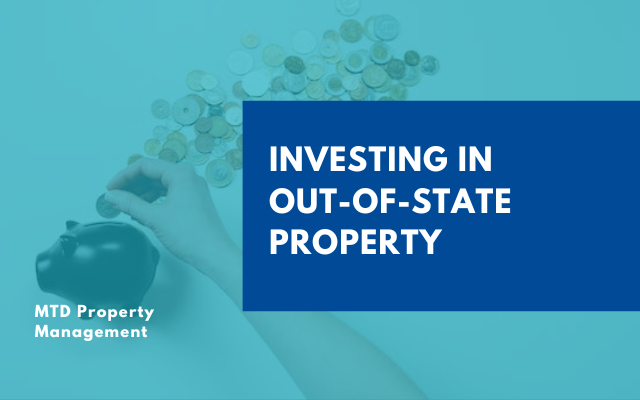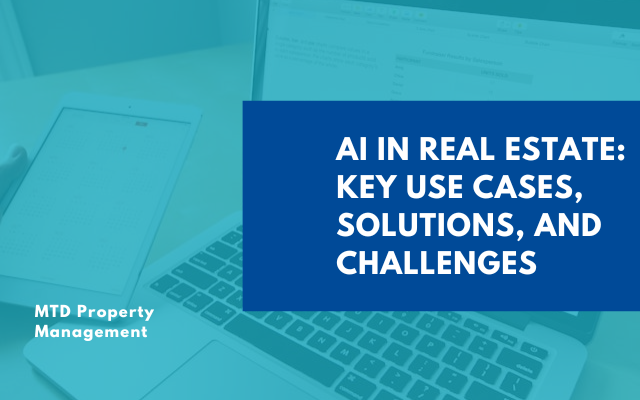
While many investors initially focus on properties within their local market, expanding beyond geographical boundaries can offer unique advantages and opportunities. Out-of-state investing allows individuals to tap into diverse real estate markets with varying economic dynamics, demand patterns, and growth potentials.
This geographic diversification can serve as a risk mitigation strategy, as it reduces the impact of localized economic downturns or market fluctuations. Investors can benefit from regions experiencing robust economic growth, increased job opportunities, and a higher demand for housing.
In this blog post, we will share the reasons to invest in out-of-state property, the potential benefits, and the key considerations that investors should bear in mind.
Reasons to Invest in Out-Of-State Property
Investing in out-of-state property can offer a range of compelling reasons for investors seeking to diversify their portfolios and capitalize on unique opportunities. Here are some key reasons to consider when contemplating out-of-state property investments:
- Market Diversity: Different states exhibit distinct economic and real estate market conditions. Investing in multiple states allows you to diversify your portfolio, reducing the impact of a downturn in any single market and potentially increasing overall stability.
- Economic Growth: Some regions experience more robust economic growth than others. Investing in states with thriving industries, job opportunities, and population growth can lead to higher property values and rental demand.

- Affordability: The cost of real estate varies significantly across states. Exploring out-of-state markets may present more affordable options compared to your local market, enabling you to acquire properties with better potential returns on investment.
- Diversification of Risk: Geographical diversification can mitigate risks associated with localized economic downturns, natural disasters, or regulatory changes. A well-balanced portfolio spread across different states can help buffer against unforeseen challenges.
- Emerging Markets: Some states are on the cusp of emerging as real estate hotspots. Investing in these markets early on can lead to substantial appreciation in property values as the region develops and attracts more residents and businesses.
- Specialized Investment Opportunities: Certain states may offer unique investment opportunities, such as areas with favorable tax incentives, booming tech sectors, or strategic development plans. Staying informed about state-specific factors can uncover specialized investment niches.
- Cash Flow Potential: While property values may appreciate over time, out-of-state investments can also provide attractive cash flow through rental income. Identifying regions with high rental demand and reasonable property management costs can contribute to a steady income stream.
- Portfolio Expansion: Venturing into out-of-state opportunities broadens the range of potential investments. This expansion allows for increased scalability and the ability to tap into diverse real estate markets.

- Adaptation to Market Cycles: Real estate markets go through cycles, and these cycles may not be synchronized across different states. Investing in out-of-state properties allows you to adapt to various market phases, potentially optimizing your returns by strategically entering and exiting markets.
- Strategic Tax Planning: Different states have distinct tax structures, and understanding and leveraging these differences can be advantageous for investors. Exploring states with favorable tax policies may lead to increased after-tax returns on investments.
Challenges Faced by Out-Of-State Property Investors
Investing in out-of-state properties presents a set of unique challenges that investors need to navigate effectively. Understanding these challenges is crucial for making informed decisions and mitigating potential risks. Here are some common hurdles faced by out-of-state property investors:
- Limited Local Knowledge: One of the primary challenges is the lack of intimate knowledge about the local real estate market, neighborhoods, and community dynamics. Investors may struggle to identify the best areas for investment and gauge the potential for property appreciation.
- Distance and Travel Costs: Managing properties from a long distance can be logistically challenging and may incur additional travel expenses. Regular visits for property inspections, meetings with local professionals, and addressing tenant concerns can become time-consuming and costly.

- Legal and Regulatory Variations: Real estate laws and regulations vary from state to state, and investors must familiarize themselves with the specific legal frameworks governing property ownership, landlord-tenant relationships, and eviction procedures in each location. Non-compliance can lead to legal complications.
- Property Management Challenges: Effective property management is essential for maintaining the value of the investment. However, finding and overseeing trustworthy property managers from a distance can be challenging. Ensuring that the property is well-maintained and tenants are satisfied becomes more complex when you're not physically present.
- Networking Difficulties: Building a reliable network of local real estate professionals, including contractors, inspectors, and real estate agents, can be more challenging when you're not physically present. Establishing these connections is crucial for efficient property management and successful investment outcomes.
Tips for Out-Of-State Property Investors
Here are some tips for out-of-state property investors to navigate challenges and optimize their investment strategy:
- Thorough Research: Conduct extensive research on the target market, including local real estate trends, economic conditions, and growth prospects. Understanding the market dynamics is crucial for making informed investment decisions.
- Build a Local Network: Establish relationships with local real estate professionals, property managers, contractors, and real estate agents. A reliable local network can provide valuable insights, assistance with property management, and help navigate legal and regulatory nuances.

- Leverage Technology: Use technology to your advantage for property management, communication, and data analysis. Virtual property tours and online rent collection platforms can streamline processes and enhance efficiency.
- Professional Property Management: Consider hiring a reputable local property management company like MTD Property Management to handle day-to-day operations, tenant interactions, and property maintenance. A professional manager can alleviate the challenges of remote management and ensure the property is well-maintained.
- Visit Regularly: Plan periodic visits to the out-of-state properties to conduct inspections, meet with local professionals, and assess the overall condition of the investment. This hands-on approach helps build trust and ensures that the property is being managed effectively.
- Stay Informed: Stay actively informed about the local market, economic trends, and any regulatory changes that may impact your investment. Regularly update your knowledge to adapt your strategy based on evolving conditions.
Last Words
Venturing into out-of-state property investment is a strategic move that, when approached thoughtfully, can yield significant benefits. The diversification of portfolios, access to diverse markets, and the potential for increased scalability are compelling reasons to consider expanding your real estate ventures beyond local boundaries.
While it comes with its unique set of challenges, the potential benefits far outweigh the hurdles with careful planning and strategic execution.
If you are ready to transform your property investment experience, choose
MTD Property Management for unparalleled expertise, personalized service, and seamless property operations.









